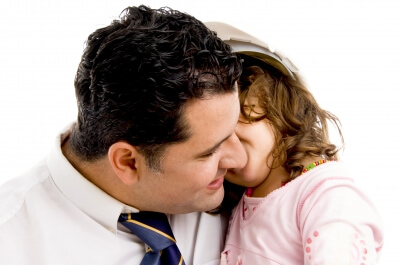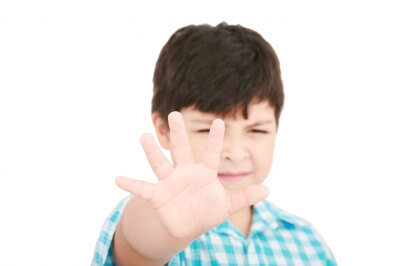Teach Your Child The Underwear Rule


Reviewed and approved by the psychologist María Alejandra Castro Arbeláez
Protecting minors from sexual assault is every parent’s duty. Teach your child about “the underwear rule” which can give them another weapon to defend themselves against sexual abuse.
The underwear rule helps parents explain to their children how to defend themselves against sexual abuse with simple guidelines.
Since we live in a world where sexual abuse still occurs, we must work constantly to protect children against this kind of aggression.
The underwear rule
Your body is yours only
The underwear rule emphasizes the importance of parents teaching their children that their bodies belong to them only, and that no one can force them to let themselves be touched.
The story teaches children that physical contact should we be with only whoever they want and the way they want. It emphasizes that they should never touch anyone else, and that no one has the right to touch them, especially in the parts usually covered by their underwear.
It is necessary for children to learn how to avoid people with whom they don’t feel comfortable. Beyond being polite, they should learn to say no and get way from people who want to approach them inappropriately.

Good way to play and bad way to play
Our children must know that there are areas of the body that no one can touch other than themselves. That is why we must openly teach them about where their private parts are. They should never show their private parts to others even when they are asked to do so.
It is important to warn them that they should also never allow other people to show their genitals or make them touch them.
You have to tell them that mom, dad or whoever is in charge of taking care of them only washes those areas during bath time and that they should be washed in the same way as the rest of the body.
Good secrets, bad secrets
Your child should know the difference between a good secret and a bad secret. The underwear rule teaches them the importance of that knowledge.
A bad secret involves a child’s genitals or the genitals of someone else. Bad secrets also involve any inappropriate behavior that makes them feel uncomfortable.
A bad secret is one that is hidden from parents because it is related to physical contact between adults and children. They should never hide a bad secret from Mom or Dad.
On the contrary, bad secrets should always be told to parents. Our children must know this.

Prevention and protection are a parent’s responsibility
Parent-child communication should be constant and open. There should be no taboo subjects or subjects that are postponed.
Children must be told about sex from an early age because it is only by knowing about sexuality that they will be able to detect if they are being subjected to some type of sexual abuse.
A child who is victim of sexual violence or abuse retreats. They feel fear about what their parents may think or do. They might even think that other people also want to harm them.
Parents should give their children all the tools necessary to defend themselves against sexual assault.
Make your children know they can always trust you and that they should always let you know when they suspect that someone is treating them in an inappropriate way.
Know their safety network
A child, with the help of their parents, should establish their own safety network.
The safety network is made up of whoever the child wants. It will be people that the child trusts enough in order to go to them when they feel in danger of sexual abuse.
Teach your child “the underwear rule”
The underwear rule should not only be taught when you suspect that a child is being abused. It should be used preventively in order to avoid all types of sexual abuse.
Child abuse is a traumatic event and it leaves psychological consequences that last a lifetime. You should keep this in mind.
All cited sources were thoroughly reviewed by our team to ensure their quality, reliability, currency, and validity. The bibliography of this article was considered reliable and of academic or scientific accuracy.
- FUE, N., & FUE, N. F. N. ALGUNOS TITULARES SOBRE MALTRATO INFANTIL. https://www.pediatriasocial.es/HtmlRes/Files/Cuadernos16.pdf
- Pau, J. S. Prevención y detección precoz en la Atención Primaria pediátrica de los problemas emocionales y del comportamiento en la infancia. PediatríaIntegral, 21(1), 8. https://www.adolescenciasema.org/ficheros/PEDIATRIA%20INTEGRAL/Prevención%20y%20detección%20precoz%20en%20la%20Atención%20Primaria%20pediátrica%20de%20los%20problemas%20emocionales%20y%20del%20comportamiento%20en%20la%20infancia.pdf
This text is provided for informational purposes only and does not replace consultation with a professional. If in doubt, consult your specialist.
